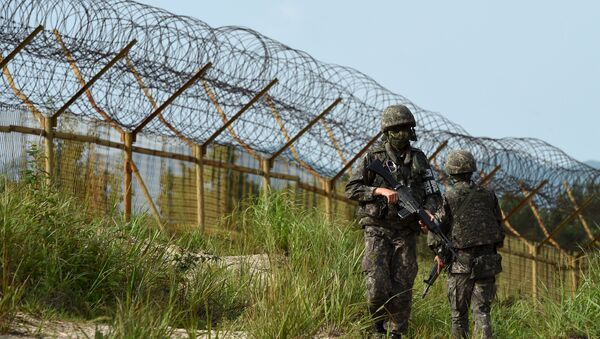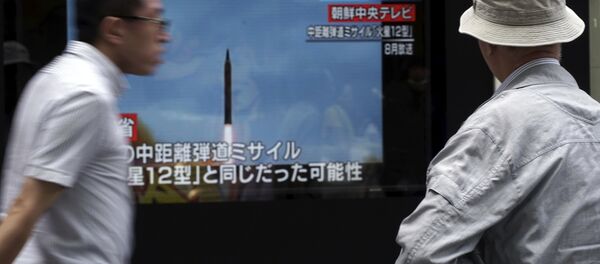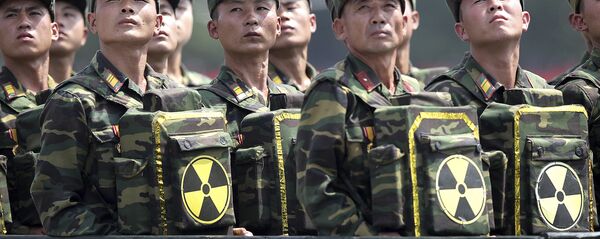Ronald Reagan became the first to visit the DMZ in a famous 1983 visit. Since then, all of his successors save for George H. W. Bush (who did visit while Reagan's vice president, but not while president) have visited the world's most heavily-guarded border.
Reagan's visit was marked by tough talk on North Korea, warning the DPRK to leave American and South Koreans alone after recent North Korean attacks against them along the DMZ and in Rangoon, Myanmar. Bill Clinton, George W. Bush, and Barack Obama all did much the same, using the visit to condemn the socialist country and galvanize the US bloc.
Trump, whose rhetoric on the DPRK has been far more belligerent than his predecessors, was to be no different. He was expected to visit the DMZ during his 12-day visit to Asia in November. The White House has yet to release an itinerary for Trump's visit, and Trump himself said he wasn't sure if he would be visiting the DMZ.
The symbolism of the DMZ, a 2.5 mile wide strip of land infested with landmines, barbed wire, and heavily armed soldiers from both Koreas, is not something to be underestimated according to former US officials and analysts. "The DMZ functions as a kind of amplifier," said Daniel Russel, former Assistant Secretary of State of East Asian and Pacific Affairs under President Barack Obama, to Stripes. "The message takes on a more martial and ominous tone when it comes out of a military command post on North Korea's doorstep."
Evan Medeiros, who also served under Obama as the National Security Council's (NSC) Senior Asia Director, said Trump "needs to be crystal clear" over his North Korea policy, and that it would be humiliating for him to cancel. "If he doesn't go, guess what the next story is?" Medeiros asked rhetorically.
After all, Trump brazenly declared during his September speech before the UN General Assembly that he would "totally destroy" North Korea if they attacked the US or its allies, and that North Korean leader Kim Jong-un "is on a suicide mission." His tone was as militaristic as we've heard from a US president in decades. Mike Pence, Trump's own vice president, visited the DMZ in April when the current missile crisis had just started. Pence said he wanted Pyongyang to "see our resolve in my face."
But that militaristic tone is exactly why some, such as South Korean president Moon Jae-in (according to the Washington Post,) have dissuaded Trump from the visit as it could further inflame tensions. "We've never had a president go to the DMZ who has implied the U.S. is preparing for preventative war with North Korea," said Michael Green, who served as senior Asia director at the NSC under president George W. Bush.
There's also concern for Trump's physical safety. After Trump's UN speech, Kim replied that he would make Trump "pay dearly" and "tame [Trump] with fire."
Trump's tour will also involve stops in Tokyo to meet with the parents of Megumi Yokota, a Japanese woman who was kidnapped by North Korea when she was 13 years old. Pyongyang claims that Yokota died of "depression" in 1994, but her parents and many in Japan believe she's still alive. Trump mentioned Yokota in his UN speech.
Trump will also travel to Seoul and meet with Moon, make a speech before the South Korean national assembly, and tour American and South Korean troops. In addition, he is expected to travel to China, Vietnam, and the Philippines where he is expected to meet with president Rodrigo Duterte.






